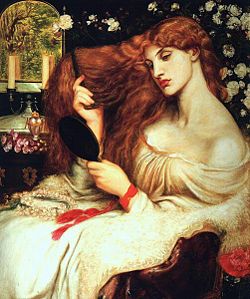Difference between revisions of "Info: Main Page" - New World Encyclopedia
From New World Encyclopedia
Svemir Brkic (talk | contribs) m (Remove current for now) |
Svemir Brkic (talk | contribs) |
||
| Line 6: | Line 6: | ||
<div class="row"> | <div class="row"> | ||
<div class="col-sm-8"> | <div class="col-sm-8"> | ||
| + | <div class="card mb-2"> | ||
| + | {{Box article selector|Current}} | ||
| + | </div> | ||
<div class="card mb-2"> | <div class="card mb-2"> | ||
{{Box article selector|Featured}} | {{Box article selector|Featured}} | ||
Revision as of 20:51, 24 July 2021
New World Encyclopedia integrates facts with values. Written by certified experts.
Template:Current article week 19
Featured Article: Lilith

Lady Lilith by Dante Gabriel Rossetti
Popular Article: Napoleon Bonaparte

Napoleon in His Study by Jacques-Louis David (1812)
Did you know?
Jing (essence), Qi (breath energy) and Shen (a divine or human spirit) are known as the "Three Treasures" in Daoism (source: Jing Qi Shen)